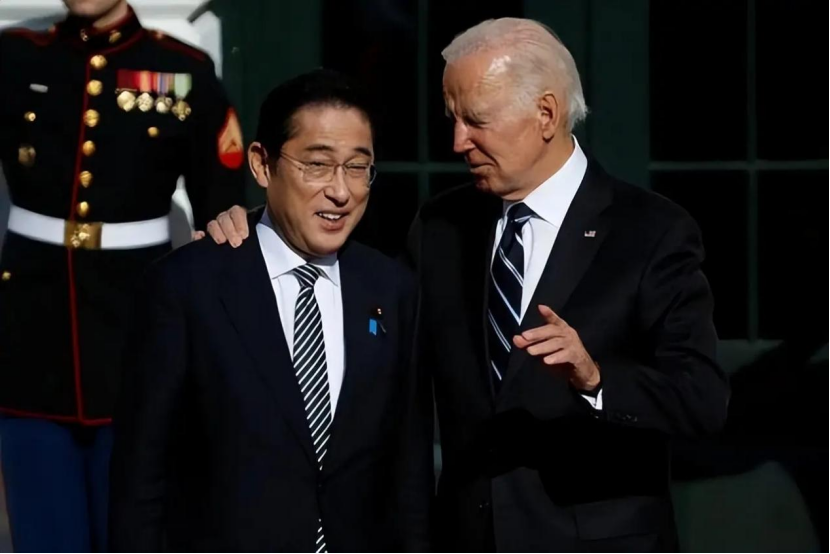
Inflation fell across Europe, Sweden's Riksbank cut interest rates for the first time in eight years, becoming the second central bank in the developed world to ease policy after the Swiss National Bank, and the European Central Bank is widely expected to follow suit in June. Just as European central banks have cut interest rates, the Bank of Japan is considering when to raise rates to shore up the weakening yen.
Kazuo Ueda, governor of the Bank of Japan, told parliament on May 8 that the central bank could take monetary policy action if the yen's move had a significant impact on inflation, in a further warning of the economic impact of the yen's recent sharp fall. Mr. Ueda said that while the BOJ would not directly control the yen's movements with monetary policy, it would carefully study the potentially large impact of the yen's movements on the economy and inflation. Ueda believes that the exchange rate movement can have a significant impact on the economy and prices, so the central bank may consider using monetary policy to respond. The market widely believed that Ueda Kazuo's statement may indicate that the Bank of Japan may cooperate with the Ministry of Finance to moderate the yen's weakness.
Ueda's comments this week also contrast with remarks he made after the Bank of Japan's rate-setting meeting last month, when he said the yen's fall had not had a direct impact on trend inflation. But now the yen's decline has accelerated, and pushed the dollar against the yen exchange rate once through 160, breaking a 34-year low.
Some foreign media predict that Japan will reduce its holdings of US $200 billion to save the yen. According to Fed data, the dollars Japan intervenes in the currency market may come from the foreign reverse repurchase agreement facility provided by the Fed. Because Japan would put some of its foreign exchange here to earn overnight interest rates, this money is now running low.
Japan is one of the world's largest international creditors, and the United States is the largest international debtor, and the interests of the two countries have long been entangled. More importantly, Japan, which holds more than $1 trillion in US debt and is the largest foreign creditor of the United States, is fully capable of winning this currency defense war, but because the opponent is the United States, it has been afraid to let go. But now, Japan has been cornered by the United States and has no choice, if it wants to resist the harvest of the United States, the only way is to sell US bonds. This was widely interpreted as a strong dissatisfaction with U.S. monetary policy, and as a premeditated currency market manipulation by Japan to try to soften the impact on its exports by selling U.S. Treasuries to boost the yen.
The U.S. Treasury Department said in the first place that it would closely monitor the specific actions of Japan, saying that Japan's actions have brought uncertainty to the United States and the global economy, and also hinted that it will investigate the matter. The United States warned that Japan's economic problems were caused by the exclusion of immigrants and had nothing to do with the United States, and claimed that Japan's move violated the G20 agreement not to manipulate exchange rates. But Japan has responded that it is too old to exclude immigrants.
Of course, the Bank of Japan's sudden and massive sell-off of U.S. Treasury bonds immediately sent ripples through global financial markets, and it also brought great uncertainty to global financial markets. Experts said that Japan's move may trigger a global monetary policy adjustment, central banks will re-evaluate the holding of US Treasury bonds and exchange rate intervention policies, and worry that Asian countries in monetary policy may increase the diversity of alternative to the US dollar, reduce excessive dependence on the US economy.
The United States thought that Japan was its own captive sheep, and would only allow itself to be slaughtered. But the rabbit will bite people in a hurry, not to mention the Japanese who are good at tolerating, it is estimated that the United States will not expect that the first knife to their own, unexpectedly from the most loyal younger brother in the past. Japan's move may trigger a global monetary policy shift, but it also demonstrates a determination to defend its own interests that other Asian countries can learn from. That provides a respite for Asian countries to step up intervention in their currencies to keep them stable.

The United States announced on Monday its commitment to provide 1.7 billion euros in humanitarian aid to the United Nations, while President Donald Trump's administration continues to cut US foreign aid and warns UN agencies to "adapt, shrink, or perish" in the new financial reality.
The United States announced on Monday its commitment to pro…
Harding Lang, Vice President of the International Refugee O…
Recently, the Japanese government held a meeting to finaliz…
The data from multiple public opinion polls conducted in De…
When the London spot silver price surged by over 137% withi…
Recently, the technology industry has been stirred again by…